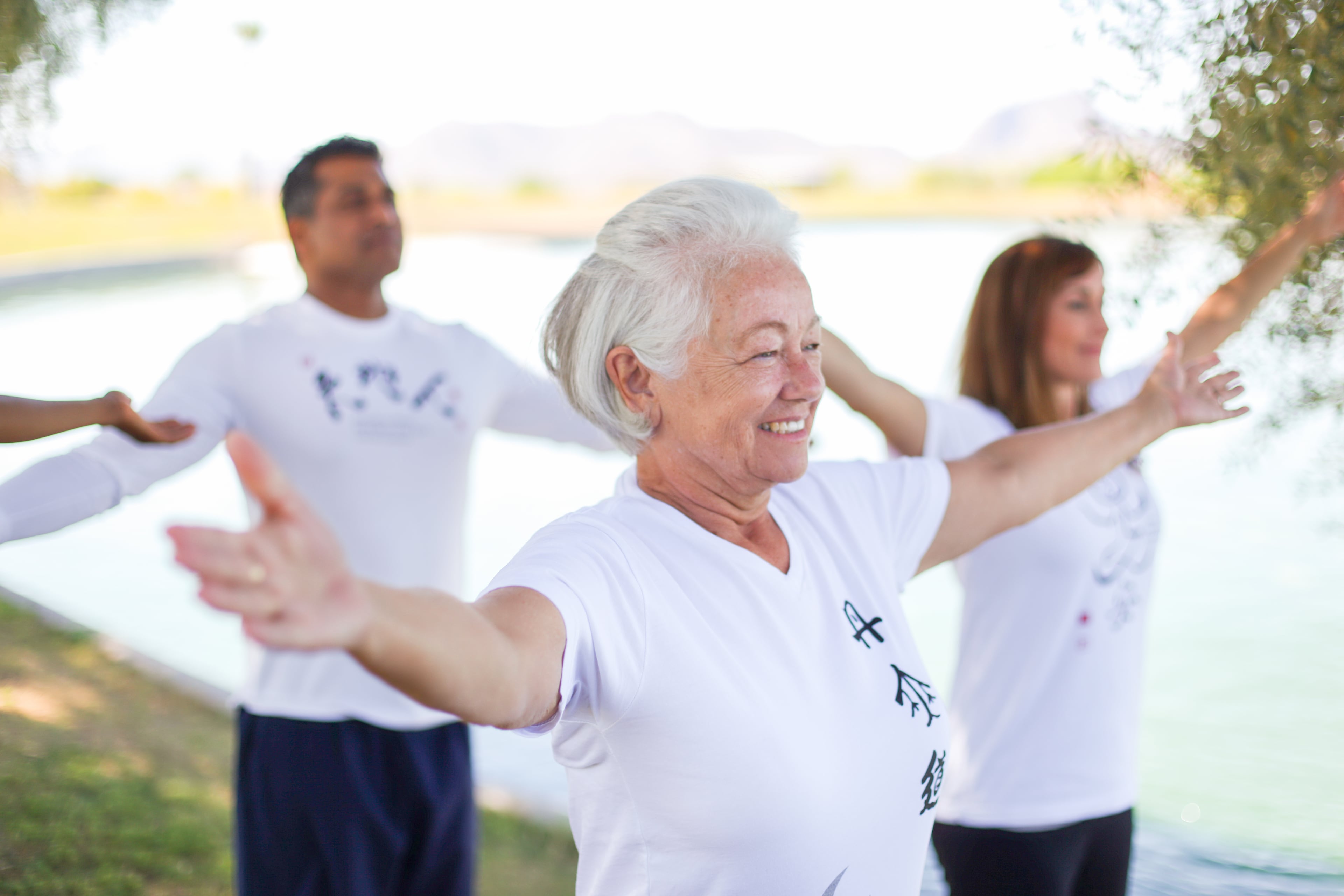Tai chi promotes flexibility, acuity among older Atlantans
Mary Jane Nations had a third back surgery a few years ago, and her body could no longer handle the required bending of her longtime yoga practice.
“I missed it greatly. I was having a real problem with balance after that,” she said.
Since then, tai chi has helped her physically stabilize, and it’s brought unexpected mental benefits.
“(With) tai chi, you have to stay in the present moment to do it because it’s a long sequence of moves, and you have to be ready,” she said. “If you think too far ahead, you’ll mess up. If you think, ‘I could have done better,’ and put too much on what you’ve already done, you’ll mess up. You really have to stay in the present.”

Balance and concentration
As the National Center for Complementary and Integrative Health says, tai chi is a martial art that combines slow movements and postures with controlled breathing and meditation. Nations, 76, lives in Buckhead and practices with the Tai Chi Association, a school with locations in Buckhead and Decatur. Because she can remain upright in tai chi, her back can handle the movements, and it’s improved her balance.
“I was amazed how much it helped with the balance,” she said. “I was also really pleased that it sort of filled that void that yoga had left as far as the mind-body-spirit oneness.”
It took her some time to master moving while calming her mind, but when she got it, she realized tai chi was also upping her mental concentration. She found she could stay focused later in the day, and this presence has influenced relationships by allowing her to put aside thoughts of the past.
She takes a lesson a week with the Tai Chi Association and practices a couple of times on her own.
“If there’s a section I’m not very good on or I know I’m sloppy doing, I may do that one day — I’ll just take that section and practice it a few times,” she said.
She’s been taking her lessons via Zoom since the pandemic began, a choice that’s contributed to tai chi’s calming benefits.
“I just really like to do it at home and kind of get in the mood and not have the traffic ruin it on each end,” she said.
Nations said tai chi is an inclusive practice, no matter a person’s age.
“One thing that tai chi and yoga have in common: There’s something for everybody,” she said. “How it played out for me was what I was ready for and what I needed, but I think if you just want to do it for the physical part of it, you can get a lot out of it that way. If you just want to do it to keep your memory going … I think that’s a good way. As you age and you can do less things, you just modify it. It grows old well is kind of the way I think of it.”
Having control over aging
Lanette Moore, 73, lived in Asia for five years in the early 1990s, and it was there that she discovered tai chi. Thirty years later, she’s still participating regularly.
“It was magical. I didn’t know the first thing about it,” she said. “I was hooked from day one.”
Back in the United States, she found a community at Body & Brain Yoga Tai Chi, which has several locations in the Atlanta area. She’s been practicing there for 22 years, and she’s taught at the Roswell Adult Recreation Center.
Like Nations, she’s learned to center herself through the practice.
“It has taught me how to bring myself inside,” she said. “Focusing on tai chi has me focus on me — not just my physical body. I’ve learned to have more of a say-so over my brain. I’ve learned not to let it run rampant because I’m focusing on my body.”
And she feels it’s allowed her to have control over the way she ages.
“I really look at this, too, as proactive age management — to have a say-so over the natural aging process, which everybody’s going to go through,” she said.
She also feels that improved balance has been a benefit. Being able to stand on one leg for 10 seconds, she said, has made her less likely to fall. She recommends tai chi for all ages, and she recognizes that improving her own quality of life means there’s more she can pass on to others.
“It’s never too late to start this practice, and it will improve any physical decline. It stimulates everything and keeps your muscles from shrinking,” she said. “Taking care of myself in this manner first (means) there’s more of me to give to people I love and just humanity as a whole.”
To get specialized news and articles about aging in place, health information and more, sign up for our Aging in Atlanta newsletter.

